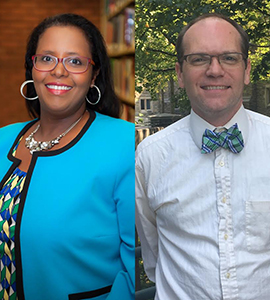Loyola University Maryland faculty awarded grant to build a strong pipeline of diverse STEM educators

Their project, titled “Building Capacity for a STEM Learning Network to Prepare Highly Effective STEM Teachers for Teaching in High-Need Schools,” will provide the infrastructure for developing a pipeline of highly qualified teachers with strong backgrounds in STEM content, as well as training in effective culturally and linguistically responsive pedagogies.
“We’re honored to be given the opportunity to establish a network of STEM educators who have the skills needed to teach high quality math and science content to students of all backgrounds,” said Hersi. “This collaborative effort will help us get more diverse, committed, and compassionate science and math teachers into our state’s highest-need schools.”
With a long-term vision of closing the student-teacher diversity gap in the Baltimore region, the grant represents a collaborative effort among faculty in the Teacher Education Department, mathematics and science faculty at Loyola University Maryland and Baltimore County Public Schools (BCPS). Loyola University Maryland School of Education faculty members Ramon Goings, Ed.D., assistant professor of Educational Leadership, and Stacy Williams, coordinator of clinical experiences, will also serve as senior personnel on the project. The team’s work will begin in July.
“This project is designed to develop and nurture effective educators who will not only teach STEM subjects, but transform STEM education here in Maryland and beyond,” said Clark. “Our ultimate goal is to make math and science education engaging, effective and accessible for all students.”